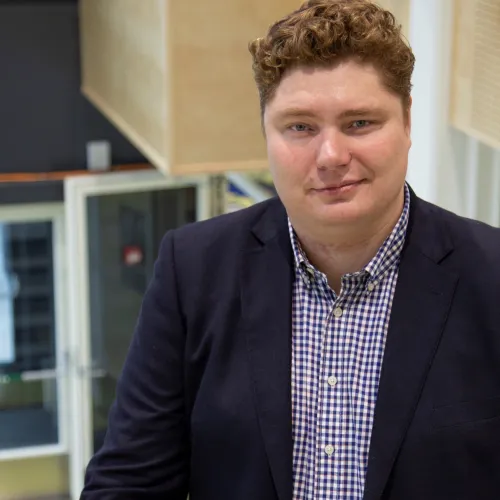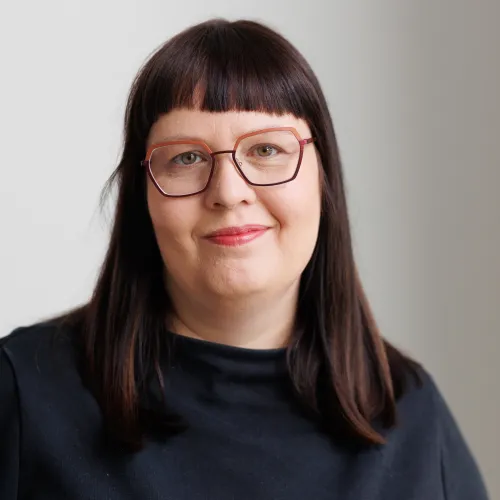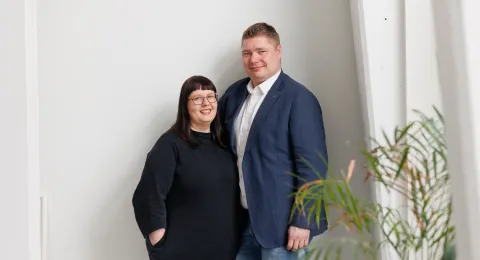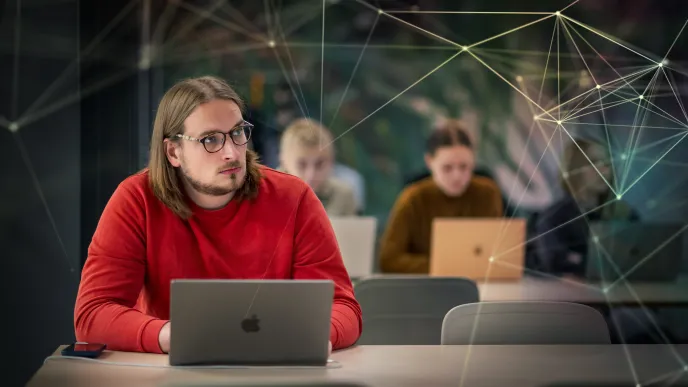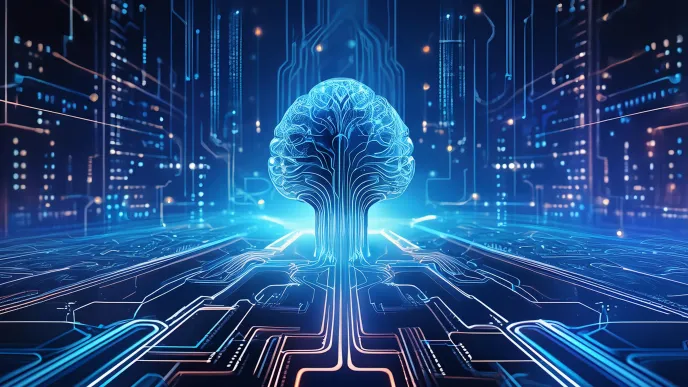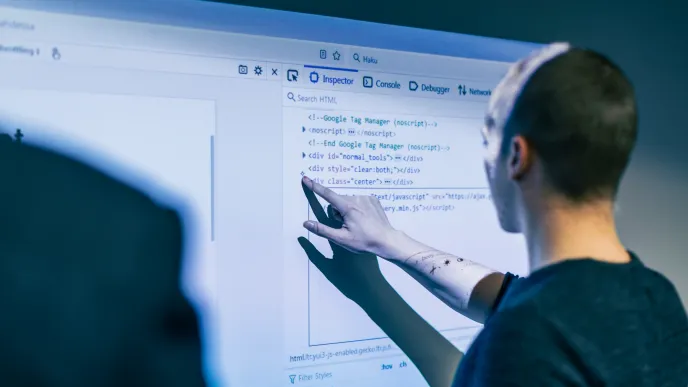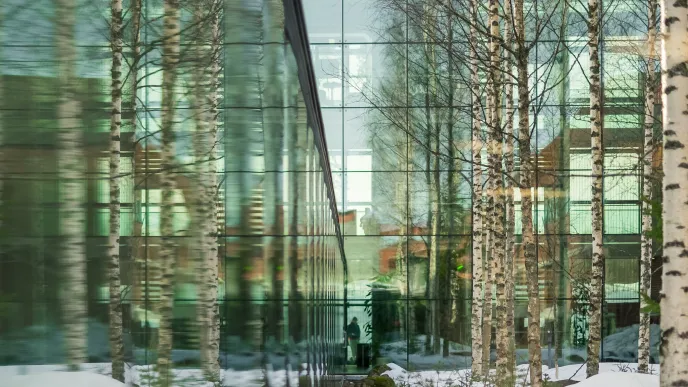Sami and Sonja Hyrynsalmi share not only the same last name but also a workplace. Sami has just started as the dean of LUT School of Engineering Sciences whereas Sonja works as a postdoctoral researcher at the department of Software Engineering, focusing on teaching and human capital research in software engineering.
However, the couple entered the software industry through two very different paths. Sami earned his Master of Science in Technology from the University of Turku and continued directly into doctoral research, after which he joined the Pori campus of Tampere University as an Assistant Professor.
Sonja, on the other hand, began studying computer science at the University of Helsinki but later switched to studying social policy at the University of Turku. Still, she never completely left the software world behind: she continued organizing coding courses, attending conferences, and working for a long time at Turku Science Park. Eventually, Sonja’s interest in research prevailed, and she applied for a position as a doctoral researcher in software engineering at the University of Turku.
It was also in Turku that Sami and Sonja first met through mutual acquaintances and began dating in the summer of 2014. In October 2019, the couple moved to Hyvinkää when Sami joined LUT University's Lahti campus as an Associate Professor of Software Engineering. Two months later, Sonja began working at the university as a junior researcher.
"If I had been told a year earlier that I would be working at the same workplace as Sami in Lahti, I would never have believed it. But that just shows how life is full of surprises," Sonja laughs.
"The fact that we both ended up at LUT was perhaps more of a coincidence than a plan," Sami adds.
LUT invests in the future of software development
The couple emphasizes that the software industry – the field that brought them together – is constantly evolving – right now, technology is changing faster than ever, making continuous skill development essential. In addition to education, research and collaboration with businesses are key to advancing the field.
"LUT’s strength lies in its cooperation with companies: we don't just focus on theory, but run various joint projects," Sami says.
For example, Sonja highlights the software engineering department’s ongoing project with Solita, Ericsson, and Kempower that examines hybrid work practices in software development and their impact on job satisfaction and perceived productivity.
We have always been enthusiastic about the same things. When you have a shared interest in work, there is plenty to talk about.
"It's important to understand that software development is much more than just coding. More functional hybrid work practices help improve product development, scheduling and process management," she says.
The significant growth of LUT’s software department brought the Hyrynsalmi couple to Lahti. In recent years, LUT has kept significantly increasing its software engineering education, especially in Lahti.
Additionally, South Karelian companies recently donated 2.1 million euros to LUT universities, which will be used to establish a professorship in artificial intelligence in Lappeenranta, among other initiatives. The new position aims to strengthen LUT's AI expertise within software development and support the creation of AI agents to develop software more efficiently.
"Artificial intelligence is drastically changing software production by eliminating many unnecessary intermediate steps. At the same time, however, we must also take into account ethical issues and how artificial intelligence is used responsibly," Sami points out.
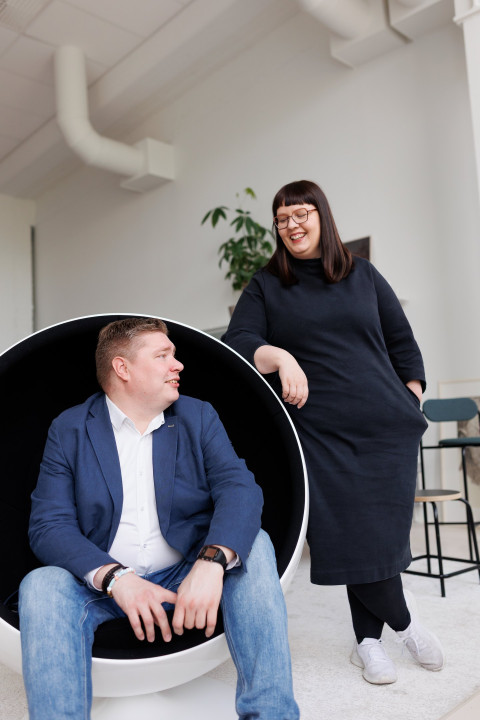
How to ensure Finland's digital independence
Software development is not only affected by technological development – global politics also play a role. Sami emphasizes the importance of Finland's digital independence, noting that nearly all systems and services, from software development tools to cloud platforms, are controlled by US companies.
"It is difficult to find solutions that do not originate from the United States. If a superpower decides to limit the availability of technology, it can cause significant disruptions," he says.
Even though services such as Spotify are Nordic, their backend systems often run on US servers.
"Google and Microsoft may promise that the data will not be leaked to outsiders, but in the end, the companies do not have full control over what happens to their data," Sami points out.
According to Sonja, the challenges of digital independence have been discussed both in Finland and in the EU, but only now is there a broader debate over what should be done about it. The biggest challenge is that, despite Finland's strong software expertise, most software companies operate in consulting rather than developing their own products.
"At LUT, we have launched master's programmes to increase the ability to independently develop software and services. For example, the two-year Master's Programme in Software Product Management and Business can be used to quickly train experts who understand the strategic importance of software engineering," she says.
Sami and Sonja point out that implementing independent technology solutions also requires political will and significant investments. As a multidisciplinary university of technology, LUT can also support digital independence through education and research.
"Changing platforms and building new systems is expensive. That is why we need shared will and courage to make big decisions," they emphasise.
Family life brings balance to work
When working with a spouse, it’s easy for the line between work and home to blur. Work-related matters are often discussed also at the Hyrynsalmi home.
"We may share interesting news or talk about things that have come up during the day. On the other hand, this kind of work can’t really be confined to office hours. I can’t even imagine it working any other way,” Sami ponders.
"We have always been enthusiastic about the same things. When you have a shared interest in work, there is plenty to talk about," Sonja adds.
Fortunately, there are also things that help to detach from work. Sonja laughs that the couple's five-year-old will let them know if the conversations become too work-oriented.
"Family life helps to put things into perspective. When I pick up my child from daycare, I am not my work self at that moment," Sami continues.
"And at home, Sami is no longer the dean for me. Family is the glue that keeps us grounded," Sonja concludes.
Software development in the midst of transformation:
- Software development refers to the process of designing, developing, testing and maintaining computer programs and digital services. It covers everything from a single mobile app to extensive cloud services.
- Generative AI, such as ChatGPT, is bringing rapid changes to the industry. Artificial intelligence speeds up development work but also changes competence requirements: software engineers are expected to think more strategically and be able to utilise new technology in the future.
- Productivity increases, but the focus of work tasks shifts. AI is not a replacement for developers but serves as a tool that allows you to focus on more complex and impactful tasks.
- Digital independence means the ability to manage and develop one's own technological solutions without dependence on foreign operators. LUT University invests in education and the utilisation of artificial intelligence so that Finland can strengthen its self-sufficiency in software development.
More information:
